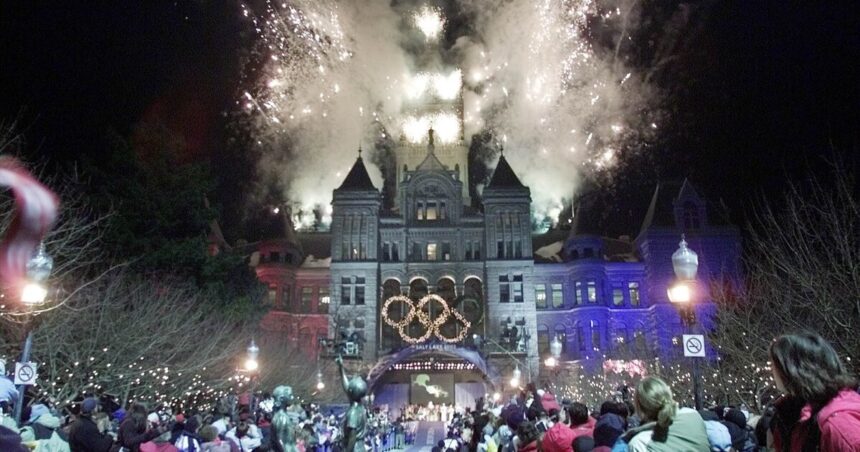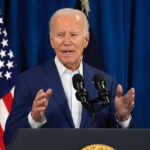Salt Lake City will find out on Pioneer Day — a very Utah day for good news — if it will host the 2034 Winter Olympics. With no other contenders, a win is so likely it’s not worth a bookie’s time.
The state is no stranger to hosting, but the anticipation of the announcement was different in June 1995 when Salt Lake City was awarded the 2002 Winter Olympics. The city had lost its bid to host in 1998 to Nagano, Japan, and, with fierce competition from three other cities for 2002, emotions ran high.
Howard Berkes, a retired NPR national correspondent based in Salt Lake City for 38 years, was at Washington Square in downtown Salt Lake City when the 2002 games were awarded.
“There was a lot of tension, excitement and nervous expectation,” the veteran reporter of eight Olympic games remembered. “So, when the president of the International Olympic Committee, Juan Antonio Samaranch, appeared on a big screen and made the announcement, it was just unbridled joy and excitement, and the cheering went on for a long time.”
Three years later, Utahns would find no grounds for celebration. That’s when the city was embroiled in a bribery scandal that almost derailed the games. Berkes said it turned into the worst ethics scandal in Olympic history.
“Unfortunately, those behind the Salt Lake City Olympic bid did what they felt they had to do to win IOC votes. They offered IOC members and their families things like college scholarships, paid apartments, cash, free trips to the Super Bowl. All kinds of gifts were showered on IOC members in order to get them to support Salt Lake’s bid.”
It took the appointment of Mitt Romney by then-Gov. Mike Levitt to get the games back on track.
“He picked somebody with a solid Mormon pedigree and fiscal discipline, which would help restore confidence in Salt Lake City,” Berkes noted. “That helped because sponsors were bailing out and threatening to not fund the Salt Lake Olympics, and questions were raised about whether the games should even proceed here.”
The bidding process has been altered significantly in the last 29 years, and though Berkes said there’s not a whiff of scandal at this point, Utahns should seek accountability and transparency in the 2034 Winter Olympics.
“Those two things were not widely evident during the 2002 bid and even during the organizing of the games. The budget was a secret document, that should not be a secret document. The taxpayers of Utah are on the hook for cost overruns so they have an absolute right to see how money is spent, how contracts for millions and millions of dollars that will be required for venues and new construction are going to be let out. Who is benefiting, who is not benefiting? ”
Berkes challenged the assertion that the 2002 games ended with a surplus and said the public must remain vigilant. He said the budget for “the actual operation of the games” might have finished with a surplus, but that’s different than the costs of putting on the Olympics.
“Because of the Sept. 11 attacks, hundreds of millions of dollars had to be spent by the federal government, some money by state and local authorities for security, that wasn’t part of the regular Olympic budget,” he noted. “And infrastructure improvements were made rebuilding Interstate 15 and building the TRAX extension to the University [of Utah]. That added all kinds of other spending.”
“If you actually take into account all of the money that was spent, it far exceeded that budget surplus. To say that it made a profit is really misleading and disingenuous.”
Despite his role in helping bring the bribery scandal to light with NPR, Berkes said he had “fun covering the hometown Olympics.”
“Even the often skeptical media were overwhelmed with how well they were treated and welcomed here. I still see people wearing their 2002 Winter Olympics jackets around Salt Lake City, and by all indications, holding them again in 2034 would be a very popular thing to do.”











